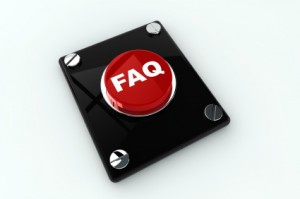Do you ever feel like freelance writing is some sort of secret club, where everyone speaks a private language you don’t understand?
Feel baffled about the basics of how it all works?
Sometimes when I’m writing about the freelance-writing game, I’m guilty of forgetting that some writers are brand-new to this.
Don’t feel dumb
I’m glad that a few brave newbies are willing to ask about terms they don’t understand, either here on the blog or in the forums on Freelance Writers Den.
And I know for every writer willing to ask me about industry jargon or how things work, there are probably 100 more too embarrassed to say they don’t know.
So I want to back up today and explain some terminology and basic resources on how to take those first steps.
These are the seven questions I’m most commonly asked by new writers:
- What is a clip? This term used to mean an article you’d written and had published. We called it a clip because you’d cut or clip it out of the magazine or newspaper it appeared in and paste it into your portfolio. Which was a physical book. Then we saddled up our horse and rode to town…OK, I’m not quite that old. But obviously, the term is a little out of date. Today, we usually collect our clips in a virtual portfolio of links that you create on your writer website, so prospects can easily find and read your work online. This published work we still call clips. Out of habit. Yes, I can totally see why that’s confusing if you’re new here. The important point is, it’s helpful to have a few clips from quality places to convince prospects to hire you…but not essential.
- What is SEO? That stands for Search Engine Optimization, which is the art of putting key words into your writing at a level of frequency that will help the Web page it appears on rank highly in search engines for those particular words or phrases. At this point, if someone asks if you are an “SEO writer,” you probably want to run the other way. This means you’ll be writing for an audience of search-engine robots, rather than people. And that work almost always pays very poorly.
- What is The Writer’s Market? I’m so glad you asked, since I’m on the freakin’ cover of the 2013 edition! (Not making this up — check it out!) Why does this make me feel like the queen of the freelance writing dorks? Because this doorstop-sized volume is the definitive source of market information for everything from magazines and trade publications to book publishers and poetry contests. It’s got a handy survey in the front on what people charge for various types of writing, too, in case you’re baffled on what to bid. If you’re buying TWM, get the online-supported version where you can search their database. Real time-saver.
- What is an interview? An interview is the conversation you have with a source for an article. It happens either in person or over the phone. You ask questions, and then listen and take notes while the source answers. Emails are not interviews. If you get answers to your questions on email, you should cite it as such to make clear you in fact did not interview the person, as in: “‘That sucks,’ said Joe Smith in an email response.”
- Which editor should I contact at a magazine? Don’t hit anybody above managing editor — an executive editor or editor-in-chief is usually above the day-to-day fray and not reading query letters. If there’s an articles editor or an editor for the specific column you’re pitching, choose them. Otherwise, managing editor is often a good starting place. Of course, you could always just call up the publication and ask them who takes freelance pitches. Whatever you do, don’t send your query to editor@myfavoritepublication.com. Get a real name and email or it’s into the slush pile with your idea, never to be seen again.
- What is a pitch? A pitch is your bid to write for a business or publication. It’s usually delivered on email these days, unless the publication insists on snail mail. There are two basic types of pitches, query letters and letters of introduction. A query letter contains a fleshed-out story idea, including a headline and outline of what you’d write. A letter of introduction simply introduces you to a market and explains why you would be a perfect fit to write for their publication or company. Both of these are little art forms of their own, and well worth mastering, as they can open a lotta doors for you and get you many gigs.
- Who should I contact at a business to pitch them my writing services? In general — in the absence of any personal connections or inside information on the company’s inner workings — the marketing manager is a good bet when you’re pitching your services as a business writer. You can often scan a company’s press releases to find their name.
I thought about adding one final question to this list that I get a lot: “What is the one, easiest, best, low-cost way to market my writing?” The problem is, there’s no one answer to this one. It depends on you — your personality, and the types of markets you’re going after.
My short answer, without knowing anything about you, is “The way you’re willing to stick with.”
Got another question? Leave a comment and I will strive to answer all comers.










